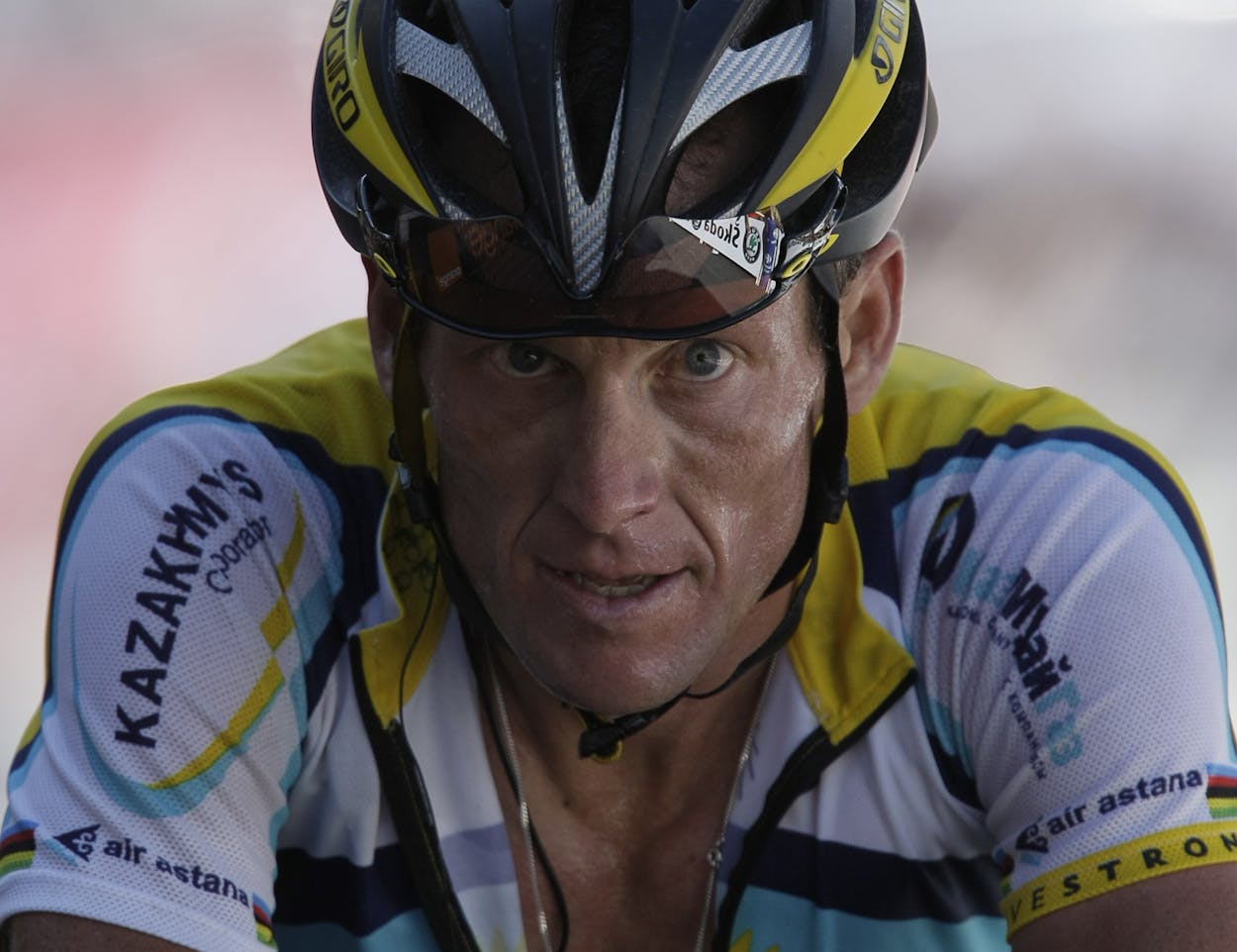After battling accusations of doping for more than a decade, Lance Armstrong, one of the most celebrated athletes in history and record-shattering seven-time Tour de France winner, ended his fight against the U.S. Anti-Doping Agency’s charges of performance-enhancing drug use on Thursday.
Armstrong still denies ever doping and called the USADA’s case against him “an unconstitutional witch hunt” in a statement, but he said that contesting the charges has become burdensome to his family and his work with cancer research. He said he was “finished with this nonsense . . . . There comes a point in every man’s life when he has to say, ‘Enough is enough.’ For me, that time is now.”
The decision not to contest the charges means Armstrong will be stripped of his seven Tour de France wins, and he could lose his bronze Olympic medal and all other titles, awards, and money he won after August 1998. The USADA will also ban him from the sport of cycling for life, though he retired last year.
“It’s a sad day for all of us who love sport and our athletic heroes,” said Travis Tygart, chief executive of the United States Anti-Doping Agency, said to the New York Times. “It’s yet another heartbreaking example of how the win-at-all-costs culture, if left unchecked, will overtake fair, safe and honest competition.”
Armstrong’s statement re-emphasized his primary argument against the charges—that the USADA still had no solid physical evidence that Armstrong ever doped.
“The only physical evidence here is the hundreds of controls I have passed with flying colors,” Armstrong said. “I made myself available around the clock and around the world . . . . What is the point of all this testing if, in the end, USADA will not stand by it?”
The USADA’s statement held that it had “overwhelming proof” of Armstrong’s guilt despite the lack of a positive test, including more than ten eyewitnesses who would testify that Armstrong used blood transfusions, the blood booster EPO, testosterone, and other drugs to win his Tour de France titles.
Lynn Zinser of the New York Times expressed surprise that Armstrong, who “fashioned himself as the guy who would never give up,” would “bow to an army of accusers” alleging that his remarkable athletic achievements were due to performance-enhancing drugs. “Even after they all decided they were probably right, you could imagine Armstrong on his deathbed, wheezing, ‘I never failed a drug test!’” Zinser wrote.
Michael Rosenberg of Sports Illustrated held that Armstrong only conceded because he’s banking on the possibility that Americans, enamored with Armstrong’s mythic force of personality and ultra-public cancer work, “don’t care if he used drugs.” “He is probably right,” Rosenberg wrote. “The U.S. Anti-Doping Agency says Lance Armstrong cheated to win bike races. Armstrong says he is trying to cure cancer. I think a lot of people would rather listen to Armstrong.”
David Roth of the Wall Street Journal had a similar view, speculating that Armstrong will “continue to be an inspirational figure to many who care less about his yellow jerseys than his broader brand as inspiration personified.”
It seems as though Rosenberg and Roth are right: social media reaction to the news has offered up plenty of support for Armstong. The Vancouver Sun posted a roundup of Tweets made in Armstrong’s defense (“I will always back Lance Armstrong;” “He will always be the greatest cyclist ever!!!!!”), but there are people denouncing him, as well (“American cyclist Lance Armstrong Is a Disgrace to America and the whole Tour de France”).
Forbes focused on the likelihood that the cyclist has destroyed his cache as an endorser, and that he “may have just kissed good-bye to at least $50 million in product endorsements over the next 5 years (combined with the immediate loss of $7 million annually for past winnings).”
Jeremy Stahl of Slate posited that since “every single rider that finished second to Lance has since been connected to doping,” that in stripping Armstrong of his titles, the USADA “should also declare all seven years null and void.”
Because doping was so endemic in cycling throughout Armstrong’s career, Stahl argued, “there should be no Tour de France winner on the record books from 1999 to 2005. Those years should be vacated.”
Matt Seaton of the Guardian warned that Armstrong’s downfall was a lesson to the public: to guard against our own “gullibility and willing complicity” when it comes to the cult of celebrity. “The moral of the story is that if a cyclist looks too good to be true, then he probably is. But if a cyclist looks too good to be true and has an entourage of lawyers, press flaks, doctors, and bodyguards, then he definitely is.”






